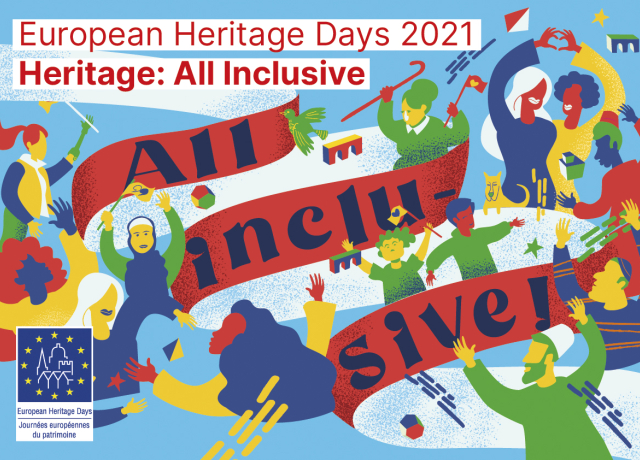European Heritage Days Article:
European Heritage Days 2021 - "Heritage All Inclusive"
European Heritage Days Article:
European Heritage Days 2021 - "Heritage All Inclusive"
“Creating shared experiences through culture and artistic expression is a powerful tool for strengthening social cohesion, respect for diversity and human rights for all. Democratic participation in culture is a key instrument in helping us achieve these aims. The European Heritage Days contribute to building bridges by celebrating the richness of European cultural heritage and they provide us with a valuable opportunity to explore and celebrate the mosaic of cultures from which Europe is built. Like freedom of expression, freedom of cultural expression is essential for creativity and a flourishing cultural life”, said Marija Pejčinović Burić, Secretary General of the Council of Europe.
After a year marked by the Covid-19 pandemic, the European Heritage Days will celebrate the re-opening of heritage sites and will offer everyone an opportunity to meet and share. A wide range of cultural events taking place mostly in September and October in participating countries will include exhibitions, workshops, performances, guided tours and many other activities. Breaking down barriers will be at the heart of the EHD 2021 season, from ensuring that events can be enjoyed by people with a sensory or physical disability, to linking inclusive heritage to railway heritage with a view to encouraging travel across regions and improving accessibility of EHD events for persons with reduced mobility in the context of the 2021 European Year of Rail.
Two European cross-frontier co-operation initiatives are also being implemented to promote inclusion and diversity. The project “Heritage, Women’s Legacy” led by Spain in partnership with France, Italy, Romania, Slovenia and England, aims to achieve greater equality between men and women and greater presence and visibility of women’s contributions to common European cultural heritage. Another initiative, “Our queer cultural heritage”, led by Scotland in collaboration with partners in Germany and Ukraine, contributes to furthering our understanding of the history of access and participation in the world of sports.
“Europe’s museums, archives, monuments and other sites featured by the European Heritage Days, give us much to share, cherish and safeguard. Advances in technology are opening up opportunities to digitise cultural heritage and it is now becoming a centre stage for its collection, preservation and celebration. The online availability of cultural content offered by EHD local events makes it possible for people throughout Europe to enjoy access to it for education, work or entertainment”, said Mariya Gabriel, European Commissioner for Education, Culture, Youth and Sport.
